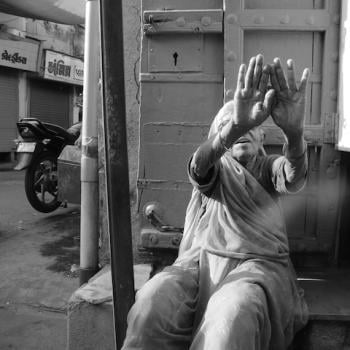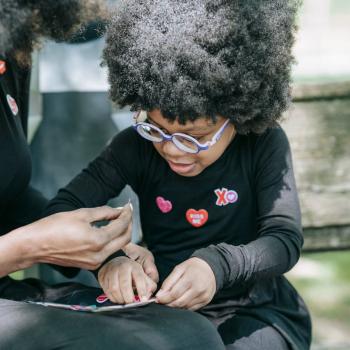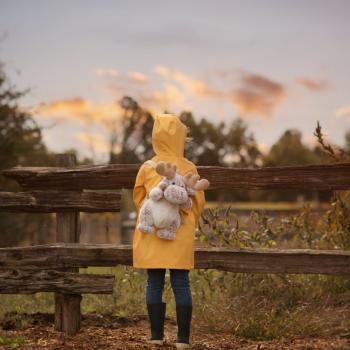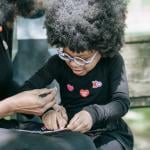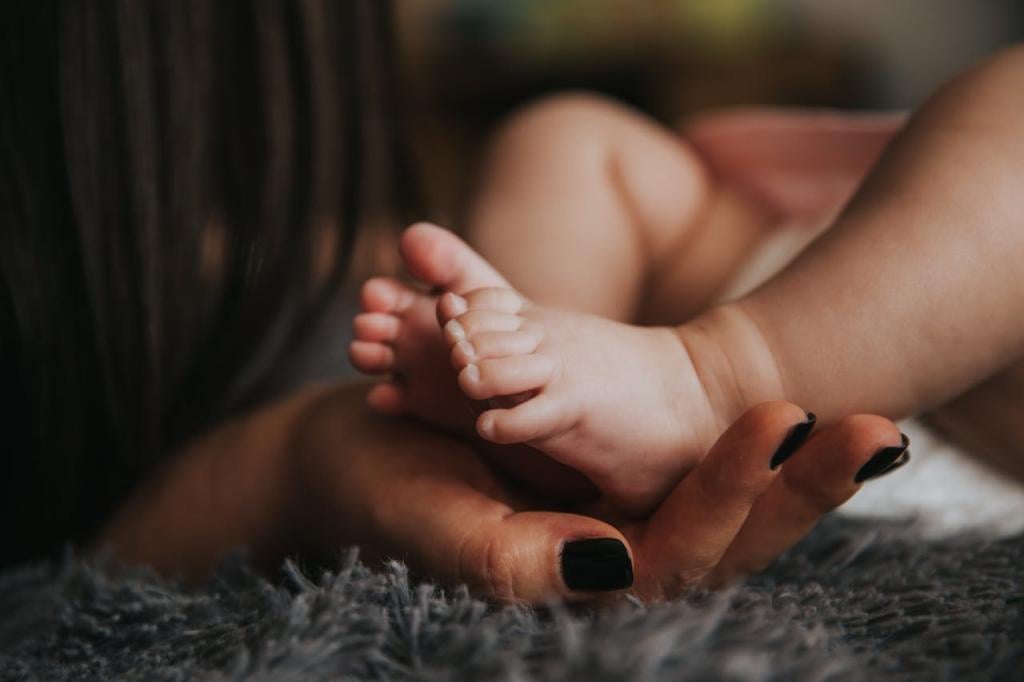
Excerpt from the book Copyright © 2025 by Karl Forehand
Learn to be Where You Are (Presence)
“The quality of your consciousness at this moment is what shapes the future.”
– Eckhart Tolle
Ms. Beaty was one of my favorite teachers. Back then, teachers took attendance by calling each student’s name and asking them to respond with “here” or “present.” Although both responses indicated the same thing, we now recognize that they can imply different meanings. When my teacher asked, “Are you present?” she meant, “Are you here?” In contrast, when Laura asks me, “Are you here?” she is actually inquiring if I’m “present.”
Manhattan Mental Health Counseling says, “Being Present means being fully conscious of the moment and free from the noise of internal dialogue. It’s often associated with feelings of stillness and peace. Sensations often seem sharper. Those who inhabit this present state frequently report a sense of experiencing life ‘as it really is’ and being ‘free from delusion’.”[1]
Being Aware of Our Senses
Our senses provide insights that we often overlook when we focus on past mistakes, failures, and future fears. As our restless minds wander through time, we miss the signals from our surroundings. We can cultivate a sense of gratitude by staying present and concentrating on what we see, hear, feel, taste, and smell.
In my youth, I often rushed through meals. With four brothers around, you didn’t get enough food if you didn’t eat quickly. We took a bus to vocational-technical school during high school and barely had time to enjoy our lunches. During those moments, we largely overlooked the flavors of our food, and even more troubling, we missed the comforting sights, smells, and sounds that could have brought us joy!
Instead of rushing through our day and then pondering our experiences, practicing mindfulness enables us to enjoy the scent of soap while washing our hands and reflect on the origins of our food with every bite. We can take a moment to value our children and grandchildren as they play rather than merely managing them or fretting about their futures.
When we obsessively replay the past or fearfully think about the future, we overlook the obvious signs that the universe offers at the present moment.
Thoughts and Judgements
Yesterday, we recorded a podcast highlighting the importance of saying “I don’t know” to promote ongoing exploration and resist the immediate urge to defend our judgments. Less than an hour later, while driving, I encountered something and quickly formed a judgment about it. Soon after, Laura asked a question about the situation, and I had some thoughts. I shared my opinion even though I hadn’t fully considered it.
I believe it’s a form of protection that has evolved within us. When we face danger, we must quickly assess what may be harmful and what is safe. However, we are not in danger most of the time, nor do we need to make hasty judgments about people and situations. In reality, it might be more beneficial for us to avoid rushing to conclusions. Instead, we should continue to reflect, conduct further research, and discuss with those we respect.
I cherish the moments I spend with friends who are slow to judge. This approach allows me to consider all sides of an argument and gives me time to think rationally about the points I mentioned earlier while engaging all my senses. Mindfulness and similar practices involve making decisions or setting intentions and fully absorbing what we observe. This requires a sense of calm and works best when we remain still, directing our thoughts toward our observations, feelings, and the messages conveyed by the external world.
I continue to practice an ancient technique known as centering prayer. After setting aside my numerous thoughts without judgment, I use a word like “stillness” to help me concentrate. Then, I observe without expectation whatever I hear or sense while remaining present and paying attention to what arises in my mind. When gathering new information and wisdom, it is essential not to judge it based on our reactionary lower brain. It is far more beneficial to “be where we are” and notice our experiences.
Paying Attention
The first half of my life was full of action. I always believed I could outwork my peers and train my mind to think faster than theirs. While focused on one task, I would contemplate what I needed to accomplish next, quickly assessing whether I had completed it correctly before moving on to something else. Someone reminded me that I’m not just a human doing but rather a human being, encouraging me to prioritize being as much as doing. Although initially awkward, it ultimately brought great rewards, so I continued to embrace it.
However, it’s also a mistake to believe that mindfulness and being present are merely about sitting in a room and meditating. They’re not strictly about doing or not doing anything; they’re a state of being and becoming that truly honors mindful action. Even while engaged in activities, one way to cultivate mindfulness is what Thich Nhat Hanh called walking meditation or mindful walking, which allows us to “deepen our connection with our body and the earth.”[2]
However, we also don’t need to engage in what might be considered a practice to pay attention. We don’t have to climb a mountain, attend a retreat, or isolate ourselves in a room to meditate. We can meditate while walking to the car to go shopping. We can be mindful while waiting in line at the grocery store. We can listen empathetically to a friend without judgment, remaining fully present as they share their emotions, fears, and experiences.
In some ways, this has become easier for me since my stroke. I can’t move as quickly, so I find myself appreciating my surroundings more while I take my time to reflect on my frustrations and struggles.
Engaging With Our Actions
When I worked on the assembly line, it was easy to distract myself and think about something else while assembling lawn mower engines. After a while, it became almost subconscious, as muscle memory and adrenaline kept me moving at peak efficiency. When I zoned out too much and made a mistake, someone usually reminded me that I messed up, even though I didn’t consciously remember doing it.
Let’s be clear when discussing mindfulness and presence. It doesn’t mean escaping reality or constantly focusing on something perceived as more virtuous. Sometimes, being present requires giving our full attention to the person we’re listening to, even if their story is long, tedious, or repetitive. When fully present, we pick up on all their verbal and nonverbal cues; sometimes, we sense their feelings.
Early in my life, I was fortunate to receive the message to be where I was. Someone encouraged me to give my all at work, even though the stresses of life and concerns about my family often invaded my thoughts. They also urged me to be fully present at home and not to think about work while playing with my children.
Perhaps we should rethink boasting about multitasking and juggling too many responsibilities. Typically, this mindset leads to us not performing any of them well; however, when we fully engage in the task at hand, we excel at more things. Earlier in my life, I noticed pastors delivering lengthy sermons that often lacked a clear point. These men took pride in speaking without notes for as long as an hour. The problem was that their primary points received insufficient attention, while their irrelevant illustrations and wandering metaphors only confused the listeners.
We need to focus more on the present. Right now, my son is visiting from Taiwan and sleeping. We have several activities planned for the next few days, and things will come up as we go along. But at this moment, I am writing this chapter, and it would be better if I didn’t think about what I need to do tomorrow or how I messed up yesterday. It’s crucial to stay present and concentrate on the task at hand.
Regulating
At one point in history, we believed that all speed limits in the United States should be significantly lower. For instance, the highway that currently has a 70-mile-per-hour speed limit was once set at 55. Although the highways were well-equipped for faster traffic, commercial vehicles sometimes had regulators on their engines that prevented drivers from exceeding 55. Even now that the speed limit is 70, people still struggle to regulate themselves to stick to the appropriate and safe speed limit.
Children frequently encounter challenges in managing their emotions and behaviors, especially in stressful environments or without proper care. With the right support and guidance, they gradually learn to self-regulate and soothe themselves, allowing them to function effectively as adults in society. Nonetheless, many adults still struggle with self-regulation, and everyone faces challenges in managing their responses to external triggers beyond their control.
It’s crucial to learn self-regulation to avoid accumulating unprocessed trauma. One effective method of self-regulation is deep breathing. Specific yoga practices are particularly beneficial in demonstrating how deep breathing connects you with your body, helping alleviate the turmoil caused by stress, trauma, and worries about the future and the past. When we take a moment to breathe and focus entirely on the present, we can respond more effectively to triggers rooted in our actual experiences rather than our imaginations.
There is a time to revisit the past. Sometimes, we must connect with our former selves to find genuine healing. Additionally, while making plans is essential, future pursuits can often lead to distractions that result in unproductive living. The ideal place for us to live is wherever we are.
Presence – Action Steps
What does the term “Presence” mean to you?
How can you cultivate presence?
How might your life improve by being present?
Spend 5 minutes writing freely about your thoughts on this chapter and the questions that arose for you.
[1] https://manhattanmentalhealthcounseling.com/what-does-it-mean-to-be-present/
[2] https://www.lionsroar.com/walking-meditation-thich-nhat-hanh/
Are you serious about deconstruction and asking bigger questions?
If that’s the case, this book was created for you. As a former pastor, I made the mistake of deconstructing a bit and then trying to start something new, as I was trained to do. The problem with that approach is that I wasn’t ready to begin something new.

I hadn’t delved deeply enough or asked enough questions. The first stage of deconstruction typically includes assessing our beliefs regarding hell and the afterlife, supporting queer individuals and women in their fight for equality, and achieving a better understanding of racism and privilege.
Many people in deconstruction communities expend significant effort criticizing Evangelicals and attempting to gain a following. While I believe they deserve intense criticism, this strategy fails to effectively tackle the problem because they generally don’t listen to us!
Our tendency to punish our former organizations sometimes overlooks the challenging process of healing and growth. It is the same trap we fell into in our former associations.

Campfires occupy a special spot in the mosaic of history. They act as communal hubs across different cultures and faiths. The campfire’s circular design fosters equal participation within the collective group. The flames at the center draw our focus and encourage face-to-face interactions as we exchange experiences, wisdom, and insights about the world beyond. It is where legendary myths and tales are born.
Order Now – Study Questions in each chapter!
This book is named Campfires in the Desert as it stems from nearly 400 discussions we held with individuals on our podcast, The Desert Sanctuary, and our aspiration to improve.
Available now!
Thanks for considering us, autographed copies are $20
Karl Forehand Campfires in the Desert – A Soft Book Release. Karl Forehand is a former pastor, podcaster, and award-winning author. His books include Out into the Desert, Leaning Forward, Apparent Faith: What Fatherhood Taught Me About the Father’s Heart, The Tea Shop, and Being: A Journey Toward Presence and Authenticity. He is the creator of The Desert Sanctuary podcast and community. He has been married to his wife Laura for 35 years and has one dog named Winston. His three children are grown and are beginning to multiply! You can read more about the author here.





